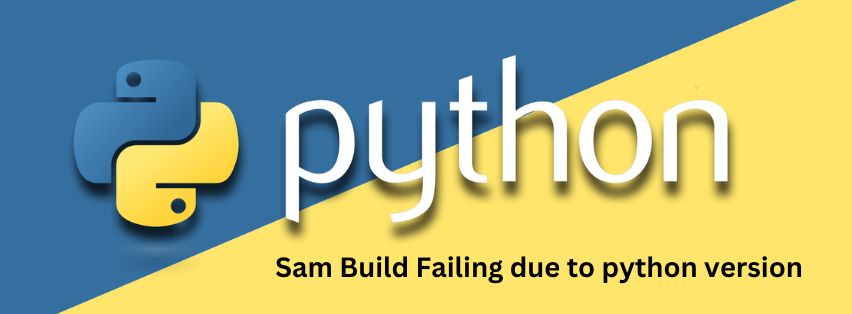
Jully 18, 2022
What Is JavaScript? A Simple Definition For Beginners.
JavaScript is a dynamic programming language that is used for web development, web applications, game development, and more. It allows you to apply dynamic features to web pages that cannot be done with just HTML and CSS. It creates elements to enhance site visitors’ interaction with web pages, such as dropdown menus, animated graphics, and dynamic background colors.
JavaScript is often used along with HTML and CSS to add interactivity to websites. In some cases, JavaScript can tap into third-party libraries to provide advanced functionality to developers without having to code from scratch each time.
According to the standard, JavaScript beginners can expect the following advantages:
- Easy to learn and apply to some specific web page elements or events
- Backed by a strong community of developers
- Reduces the number of requests sent to the server
- Compatibility with many other languages
- Faster and more lightweight as compared to other programming languages
- We hope this article has helped you understand JavaScript keys and their function in websites and applications If you’d like to learn JavaScript coding, check out our guide on learning to code.
Why is javascript used?
JavaScript is a programming language that is used to create dynamic and interactive content in web applications and browsers.
The initial versions of the scripting language were for internal use only. After Netscape submitted to ECMA International as a standard specification for web browsers, JavaScript pioneered the ECMAScript publication.
It was a general-purpose scripting language designed to ensure interoperability of web pages across different browsers and devices.
Today, JavaScript has a number of frameworks and libraries to simplify complex projects, such as AngularJS, jQuery, and ReactJS.
The difference between JavaScript and other programming languages.
The reason why JavaScript is one of the most popular programming languages is because it is so versatile. Many developers consider it to be their primary choice unless they need a specific function that JavaScript does not provide.
Let’s take a look at some of the popular programming languages:
C# – An object-oriented language for developing applications that run within the .NET ecosystem. It is statically typed, which means its variables are identifiable at compile-time. Unlike JavaScript, C# has operator and conversion overloading, which lets you change data types.
Java – is an object-oriented programming language designed to support large programs and applications. Unlike JavaScript, Java is strongly typed, which means that its variables must be bound to specific data types. Java requires a just-in-time (JIT) compiler to execute scripts.
PHP – A server-side language commonly found in PHP-based content management systems like WordPress. Its main purpose is to transfer information from database, merge HTML files and track sessions. Unlike JavaScript, PHP can directly access databases and accepts both lowercase and uppercase variables.
Ruby – A general-purpose programming language that supports metaprogramming, which means it can analyze and modify other programs and itself. Its most popular framework, Ruby on Rails, allows you to build large web applications cost and time efficiently. The JavaScript implementation in Node.js draws inspiration from the Ruby on Rails framework.
What would the web look like without JavaScript?
Without JavaScript, all you have on the web is HTML and CSS. These are the ones that limit you to implementing a few web pages. 90% of your webpages will be static, and you’ll have dynamic changes like animations by just providing CSS.
How JavaScript makes it dynamic
HTML defines the structure of your Web documents and the content they contain. CSS declares various styles for the content provided in a web document.
HTML and CSS are often called markup languages, rather than programming languages, because they provide markup for documents, at their core, with very little dynamicity.
On the other hand, JavaScript is a dynamic programming language that supports math calculations, allows you to dynamically add HTML content to the DOM, create dynamic style declarations, fetch content from other websites, and more.
In which case JavaScript is more useful
Web & Mobile Apps
Development of JavaScript frameworks including JavaScript code libraries allows developers to use pre-written JavaScript code in their projects. It saves them time and effort from having to code programming features from scratch.
Every JavaScript framework has features that aim to simplify the development and debugging process.
Meanwhile, mobile application development frameworks like Cordova and Titanium make it possible to build native or hybrid applications.
The implementation of JavaScript code in Node.js also plays a vital role in web development. The single-threaded nature and non-blocking architecture of Node.js can reduce server response time and eliminate latency.
Node.js is lightweight enough to serve as a scalable tool for microservices, allowing you to develop a single app consisting of small services with individual processes.
Developing web servers and server applications
With Node.js, JavaScript allows developers to create web servers and back-end infrastructure, saving you time and effort in building web servers.
The built-in HTTP module lets you develop a basic HTTP server that displays plain text when users access a Web page. You can use Node.js’ own web server, Node-OS, or third parties such as Microsoft Internet Information Services (IIS) and Apache to handle HTTP requests.
Keep in mind that Node-OS works best on Linux operating systems since it is built on top of the Linux kernel.
Interactive Behavior in Websites
You can only use HTML and CSS code to create a website, it will have only a static display. With JavaScript, a user can interact with web pages and have a better browsing experience.
But JavaScript allows you to change HTML content and attribute values without first reloading the web page. That’s because JavaScript supports the following data types.
Game Development
When used with an application programming interface (API) like HTML5 and WebGL, JavaScript can help you create a game. Several JavaScript-based game engines such as Phaser, GDevelop, and Kiwi.js are available for rendering graphics, code recycling, and cross-platform applications.
Some of the games built with JavaScript game engines include Angry Birds, The Wizard, and 2048.
String – Consists of textual data enclosed in quotes. For example, “hello world”, ‘hello world’, and “display text ‘hello world'”.
Numbers ‒ Covers integers and floating-point numbers between (2^53 – 1) and -(2^53 – 1).
Boolean – A logical data type with values true and false.
BigInt – represents arbitrary length integer data.
Null – holds a zero value.
Undefined – declared but not included variables.
Symbol – provides a unique identifier for the object.
Object ‒ for complex data structures written with curly braces.
eg, {item:”Book”, info:”Biography”}.
Primitive data types, including all data types except Object, can only store a single data. Meanwhile, object data types can store values
Finally, JavaScript has many advantages that make it a better choice than its competitors. Simplicity, Speed, Versatility, Popularity, Server Load, and Updates make JavaScript an enjoyment to use.
Recent Posts

Best CV Format. Free pdf download
Jully 11, 2022

Sam Build Failing due to python version
Jully 11, 2022

Best 6 successful web portals and their features.
Jully 11, 2022



